|
Books Should Be Free Loyal Books Free Public Domain Audiobooks & eBook Downloads |
|
|
Books Should Be Free Loyal Books Free Public Domain Audiobooks & eBook Downloads |
|
Humorous Books |
|---|
|
Book type:
Sort by:
View by:
|
By: Oliver Wendell Holmes | |
|---|---|
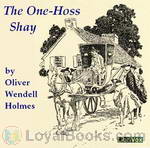 The One-Hoss Shay
The One-Hoss Shay
This is a small collection of whimsical poems by the American physician and author Oliver Wendell Holmes, Sr. "The Deacon's Masterpiece" describes the "logical" outcome of building an object (in this case, a two-wheeled carriage called a shay) that has no weak points. The economic term "one hoss shay," referring to a certain model of depreciation, derives its name from this poem. "How the Old Horse Won the Bet" is a lighthearted look at a horse race. Finally, "The Broomstick Train" is a wonderfully Halloween-y explanation of how an electric tram really works. | |
By: Harry Leon Wilson (1867-1939) | |
|---|---|
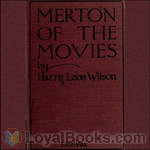 Merton of the Movies
Merton of the Movies
Merton of the Movies is a comedy that centers around Merton Gill, an aspiring dramatic artist from Simsbury, Illinois who makes his way to Hollywood to become a serious actor. How could Merton fail in attaining his dreams after finishing a correspondence course from the General Film Production Company of Stebbinsville, Arkansas, certifying him to be a competent screen actor? Harry Leon Wilson, the author, was a very popular humor writer in the first decades of the 20th century. This book was made into film several times, the last in 1947 starring Red Skelton. | |
By: John A. Joyce | |
|---|---|
 Shakspere: Personal Recollections
Shakspere: Personal Recollections
Recording of Shakspere: Personal Recollections, by John A. Joyce.A fictitious account of a "friend" of William Shakespeare, who accompanies him from his birth to his death and beyond, chronicling Shakespeare's life, adventures, speeches, and impromptu bursts of poetry. | |
By: Clarence Day, Jr. (1874-1935) | |
|---|---|
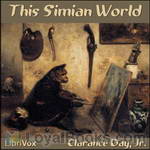 This Simian World
This Simian World
Clarence Day, Jr., best known for his work Life with Father, presents a satirical speculation on how the world might be different if we apes had not risen to prominence, but rather one of the other species had become dominant in our place. | |
By: George Ade (1866-1944) | |
|---|---|
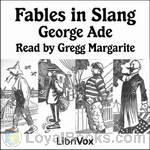 Fables in Slang
Fables in Slang
While a columnist for The Chicago Record humorist George Ade penned numerous “fables” which were subsequently collected into books. Fables in Slang is the first of these collections. It contains 26 satirical stories that lampoon phrenologists, idealists, snobs, fanatics and other ignorant fools of the day, most of which still wander through our modern lives. Jean Shepherd considered Ade a predecessor who made writers like James Thurber, Mike Royko, and himself possible. Fables in Slang was first published in 1899 by Herbert S. Stone and Company. | |
By: Sara Ware Bassett (1872-1968) | |
|---|---|
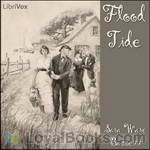 Flood Tide
Flood Tide
Willie Spence may have been a bit eccentric by most standards, but he had a knack for creating gadgets in his small workshop at his home on Cape Cod. Whenever he was 'ketched' by an 'idee' he had to see it to completion, and always did. His small cottage on the Cape had become a labyrinth of string and wires tacked here and there so as to make life a bit challenging for his housekeeper Celestina. But she and most everyone else among the coastal towns and villages loved the old man for all his eccentricities as Willie spent his waning years just waiting for his ship to come in. | |
By: Richard Brinsley Sheridan (1751-1816) | |
|---|---|
 School For Scandal
School For Scandal
Richard Brinsley Sheridan's comedy was first performed in 1777 and focuses on the intrigues and scandals of the British upper classes. Lady Sneerwell wants to marry Charles Surface, while Joseph Surface wants to marry Maria, an heiress and ward of Sir Peter Teazle. Maria, however, prefers Charles over Joseph. In order to detach her from Charles, Lady Sneerwell and Joseph spread rumors about an affair between Charles and Lady Teazle, Sir Peter's new young wife. Meanwhile, Sir Oliver Surface, newly returned from the East Indies, assumes various disguises to test his nephews' characters. Misunderstandings, mistaken identities, gossip, and bad behavior abound in this uproarious comedy. | |
By: A. A. Milne (1882-1956) | |
|---|---|
 Happy Days
Happy Days
Although best known for his Winnie the Pooh stories, A.A. Milne spent years as an editor at the English humor magazine Punch. These sprightly essays were chosen from the hundreds he wrote during that period. As usual, they are funny, wry, and poke fun at almost all of our human foibles. There are 6 short one act plays that he wrote to demonstrate the 6 allowable plots for amateur playwrights and they are absolutely hilarious. The other topics run the gamut from dogs to dates. | |
By: Rudolf Erich Raspe (1737-1794) | |
|---|---|
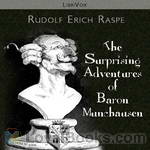 The Surprising Adventures of Baron Munchausen
The Surprising Adventures of Baron Munchausen
The stories about Münchhausen were first collected and published by an anonymous author in 1781. An English version was published in London in 1785, by Rudolf Erich Raspe, as Baron Munchhausen's Narrative of his Marvellous Travels and Campaigns in Russia, also called The Surprising Adventures of Baron Munchhausen. It is not clear how much of the story material derives from the Baron himself; however, it is known that the majority of the stories are based on folktales that have been in circulation for many centuries before Münchhausen's birth. | |
By: Richard Barnum | |
|---|---|
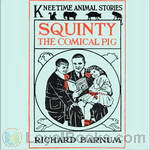 Squinty the Comical Pig
Squinty the Comical Pig
"This comical children's tale about the funny adventures of a funny pig written by an unknown author. The publisher has hired authors to write children's tales, and gave them "house names". The "name" of the author who wrote this tale is Richard Barnum. It became very successful, the most well known of Richard Barnum's tales. So, if you want to laugh a little, even if you are not a child, read this book". | |
By: Oliver Herford (1863-1935) | |
|---|---|
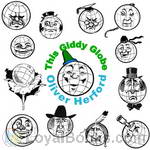 This Giddy Globe
This Giddy Globe
Is there a genre called FUN? Yes, and this is it! Insanely humorous geography that will have you rolling on the floor laughing with your sides hurting. | |
By: Timothy S. Arthur (1809-1885) | |
|---|---|
 Off-hand Sketches
Off-hand Sketches
The reader cannot but smile at some of the phases of life presented in this volume. Yet the smile will, in no case, the author thinks, be at the expense of humanity, good feeling, or virtue. Many of the incidents given, are facts embellished by a few touches of fancy. In all, lessons may be read that some, at least, will do well to lay to heart. | |
By: John Leighton (1822-1912) | |
|---|---|
 Christmas Comes but Once a Year
Christmas Comes but Once a Year
A Christmas tale of John Brown's ghastly family (suburban snobs), Captain Bonaventure de Camp and his equally awful brood (a dubious crew), and poor Soavo Spohf, organist of St. Stiff the Martyr, gifted in musical ability but not blessed in looks or love. No-one could call this a great work of literature, but it definitely raises a few chuckles and it also offers a fascinating glimpse into Christmas festivities and social mores in well-to-do households in the mid-19th century. (Introduction by Ruth Golding) | |
By: Charles James Lever (1806-1872) | |
|---|---|
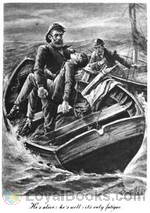 Fortunes of Glencore
Fortunes of Glencore
| |
By: Caroline Lockhart (1871-1962) | |
|---|---|
 Dude Wrangler
Dude Wrangler
Spoiled, handsome, 24 year old Easterner meets pretty, no-nonsense gal from Wyoming, is instantly smitten and does a sea-change to try and impress her in this genial romantic comedy. | |
By: Anne Wales Abbott ed. (1808-1908) | |
|---|---|
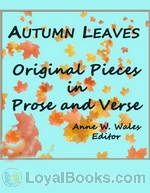 Autumn Leaves, Original Pieces in Prose and Verse
Autumn Leaves, Original Pieces in Prose and Verse
The pieces gathered into this volume were, with two exceptions, written for the entertainment of a private circle, without any view to publication. The editor would express her thanks to the writers, who, at her solicitation, have allowed them to be printed. They are published with the hope of aiding a work of charity,—the establishment of an Agency for the benefit of the poor in Cambridge,—to which the proceeds of the sale will be devoted. | |
By: James T. Fields (1817-1881) | |
|---|---|
 The Owl Critic
The Owl Critic
James Thomas Fields was an American publisher, editor, and poet. At the age of 14, Fields took a job at the Old Corner Bookstore in Boston. His first published poetry was included in the Portsmouth Journal in 1837 but he drew more attention when, on September 13, 1838, he delivered his “Anniversary Poem” to the Boston Mercantile Library Association. | |
By: Noah Lott | |
|---|---|
 The Silly Syclopedia
The Silly Syclopedia
A Terrible Thing in the Form of a Literary Torpedo which is Launched for HILARIOUS PURPOSES ONLY. Inaccurate in Every Particular Containing Copious Etymological Derivations and Other Useless Things by Noah Lott (an ex-relative of Noah Webster) | |
By: Robert J. Burdette (1844-1914) | |
|---|---|
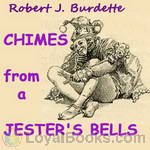 Chimes From A Jester’s Bells
Chimes From A Jester’s Bells
Part I. The Story of Rollo; Mr. Holliday knows all there is to know about raising children, or at least he thinks he does. His attempts to train his son, Rollo, "in the way he should go," are well-meant, but hilariously unsuccessful--or are they? I believe this is a sort of spoof of the “Rollo” series for children, that was written by Jacob Abbot in the mid 19th century. The characters have the same names and the chapters have a little Q&A at the end like the Abbot books, except these are definitely tongue-in-cheek... | |
By: Mary Roberts Rinehart (1876-1958) | |
|---|---|
 Oh, Well, You Know How Women Are and Isn't That Just Like a Man!
Oh, Well, You Know How Women Are and Isn't That Just Like a Man!
This warm, affectionate duet of essays by two of the early twentieth century's most popular writers is a bit dated but still entertaining. | |
By: Ellis Parker Butler (1869-1937) | |
|---|---|
 Cheerful Smugglers
Cheerful Smugglers
Saving for the baby's education: how can a young family be disciplined so as to regularly put money in the pig (bank)? Why, put a tariff on all items coming into the house, just like the U.S. Government does/did for items coming into the country! But the devil is in the details; what about taxing items brought in by visitors? Is the housemaid herself a taxable item? What items really are 'necessaries' versus luxuries? When visitors arrive these guests stoop to either 'smuggling' in their luggage items to avoid having to pay up to 30% of the value, or wear only what they came dressed in... | |
By: Ada Leverson (1862-1933) | |
|---|---|
 Love's Shadow
Love's Shadow
The first in a trilogy of books known together as 'The Little Ottleys', this is a sparkling social comedy set in Edwardian London. Ada Leverson was a great friend and staunch supporter of Oscar Wilde and shared his love for sharp, witty writing. Like Wilde, her work is characterised by a wonderful ear for dialogue and deft characterization. 'Love's Shadow' introduces us to Bruce and Edith Ottley and their friends, who are to all appearances living the bright and carefree lives of the well-to-do. But there are cracks appearing in the facade... | |
 Tenterhooks
Tenterhooks
The second of the 'Little Ottleys' trilogy, an Edwardian comedy of manners. Several years have passed since the events in 'Love's Shadow', but Bruce Ottley is as difficult and irksome as ever. His beautiful wife Edith continues to gently manage his foibles, and regards him with a fond tolerance. But then she meets the enchanting - and very handsome - Aylmer Ross. The attraction between them is undeniable, and Edith's quiet serenity is shattered. Could this spell the end for the Ottley's marriage?... | |
By: Robert Henry Newell (1836-1901) | |
|---|---|
 The Orpheus C. Kerr Papers
The Orpheus C. Kerr Papers
These are a collection of humorous "letters" written by a fictional character to a relation in the north during the Civil War. They were published regularly in the New York Mercury Sunday newspaper for the four years of the war. In the letters, Newell pokes fun at northern generals, politicians, and has hard things to say about southerners. Although Newell is rarely serious, I imagine the letters reflect the bitterness and frustration of many northerners at the time. (Introduction by Margaret) | |
By: Edward Eggleston (1837-1902) | |
|---|---|
 Hoosier Schoolmaster
Hoosier Schoolmaster
"Want to be a school-master, do you? You? Well, what would you do in Flat Crick deestrick, I'd like to know? Why, the boys have driv off the last two, and licked the one afore them like blazes. You might teach a summer school, when nothin' but children come. But I 'low it takes a right smart man to be school-master in Flat Crick in the winter. They'd pitch you out of doors, sonny, neck and heels, afore Christmas." | |
By: Joseph Crosby Lincoln (1870-1944) | |
|---|---|
 Cape Cod Stories
Cape Cod Stories
This book (eleven short stories) was also published under the title of “The Old Home House”. Joseph Crosby Lincoln (1870 – 1944) was an American author of novels, poems, and short stories, many set in a fictionalized Cape Cod. Lincoln's work frequently appeared in popular magazines such as the Saturday Evening Post and The Delineator.... Lincoln claimed that he was satisfied "spinning yarns" that made readers feel good about themselves and their neighbors. Two of his stories have been adapted to film... | |
By: Robert Copland (fl. 1515) | |
|---|---|
 Jyl of Breyntfords Testament
Jyl of Breyntfords Testament
Introduction - This is a collection of ten comic pieces from the 16th century and earlier, as compiled and edited by Frederick Furnivall for private circulation in 1871. Only the first is by Copland. (Introduction by Grant Hurlock) | |
By: William S. Gilbert (1836-1911) | |
|---|---|
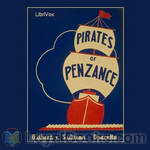 The Pirates of Penzance
The Pirates of Penzance
The Pirates of Penzance; or, The Slave of Duty is a comic opera in two acts, with music by Arthur Sullivan and libretto by W. S. Gilbert. The story concerns Frederic, who, having completed his 21st year, is released from his apprenticeship to a band of tender-hearted pirates. He meets Mabel, the daughter of Major-General Stanley, and the two young people fall instantly in love. Frederic finds out, however, that he was born on 29 February, and so, technically, he only has a birthday each leap year... | |
By: Thomas A. Janvier (1849-1913) | |
|---|---|
 Uncle Of An Angel
Uncle Of An Angel
In what I have read so far this book appears to be a humorous character study on two levels. That between the uncle and niece and that of polite society in the 19th century. Anything can happen. I for one want to find out what will happen!! | |
By: Norman Lindsay (1879-1969) | |
|---|---|
 The Magic Pudding
The Magic Pudding
Bunyip Bluegum the koala sets out on his travels taking only a walking stick. At about lunchtime, feeling more than slightly peckish, he meets Bill Barnacle the sailor and Sam Sawnoff the penguin who are eating a pudding. The pudding is a magic one which, no matter how much you eat it, always reforms into a whole pudding again. He is called Albert, has thin arms and legs and is a bad-tempered, ill-mannered so-and-so into the bargain. His only pleasure is being eaten. The book is divided into four "slices" instead of chapters. (Introduction by Wikipedia) | |
By: Various | |
|---|---|
 Little Masterpieces of American Wit and Humor Vol 1
Little Masterpieces of American Wit and Humor Vol 1
Volume 1 of a ten volume collection of amusing tales, observations and anecdotes by America's greatest wordsmiths. This work includes selections by such household favorites as Mark Twain, Oliver Wendell Holmes, Benjamin Franklin and Washington Irving. | |
By: Dorothy Scarborough (1878-1935) | |
|---|---|
 Humorous Ghost Stories
Humorous Ghost Stories
Includes: An introduction by Dorothy Scarborough -- The Canterville ghost / by Oscar Wilde -- The ghost-extinguisher / by Gelett Burgess -- "Dey ain't no ghosts" / by Ellis Parker Butler -- The transferred ghost / by Frank R. Stockton -- The mummy's foot / Théophile Gautier -- The rival ghosts / Brander Matthews -- The water ghost of Harrowby Hall / by John Kendrick Bangs -- Back from that bourne / Anonymous -- The ghost-ship / by Richard Middleton -- The transplanted ghost / by Wallace Irwin --... | |
By: Barry Pain (1824-1928) | |
|---|---|
 If Winter Don't
If Winter Don't
Barry Pain's parody takes a sharp knife to ASM Hutchinson's best selling novel 'If Winter Comes'.We follow the professional and marital decline of long suffering (and loving it), Luke Sharper, as his marriage to Mabel flounders while his love for Jona flourishes. It could only end in tears.....Or could it? ( | |
By: Henry Austin Dobson (1840-1921) | |
|---|---|
 "You Bid Me Try"
"You Bid Me Try"
Henry Austin Dobson, commonly Austin Dobson, was an English poet and essayist. His official career was uneventful, but as a poet and biographer he was distinguished. Those who study his work are struck by its maturity.It was about 1864 that he turned his attention to writing original prose and verse, and some of his earliest work was his best. It was not until 1868 that the appearance of St Paul’s, a magazine edited by Anthony Trollope, gave Harry Dobson an opportunity and an audience; and during the next six years he contributed some of his favourite poems, including “Tu Quoque,” “A Gentleman of the Old School,” “A Dialogue from Plato,” and “Une Marquise... | |
By: Donald Ogden Stewart | |
|---|---|
 Perfect Behavior
Perfect Behavior
A humorous guide to manners and etiquette for ladies and gentlemen in a social "crises," published in 1922. (Introduction by Samanem) | |
By: Don Marquis (1878-1937) | |
|---|---|
 Danny's Own Story
Danny's Own Story
Danny is the proverbial basket-on-the-doorstep baby, found by Hank and Elmira Walters, a childless couple who welcome him into their home because they need a new topic over which to bicker. Bicker they do, and fight just as often, from the day they attempt to settle on a name, to the day eighteen years later, when Danny and Hank come to blows and Danny leaves home in company with Dr. Kirby, bottler and supplier of the miracle elixir, Siwash Indian Sagraw. For years Danny wanders aimlessly--from Illinois to Indiana to Ohio, back to Illinois, then into Tennessee and points south--sometimes in company with Dr... | |
By: W. S. Gilbert (d 1911) | |
|---|---|
 More Bab Ballads
More Bab Ballads
This is a subset of the first twelve poems from the second collection of Gilbert’s “Bab Ballads” – light verses poking fun at the life and people of his time in Gilbert’s unique “topsy-turvey” style. The epitaph on his memorial on the Victoria Embankment in London is “HIS FOE WAS FOLLY AND HIS WEAPON WIT”, an epitaph amply exemplified in these verses. | |
By: Mark Lemon (1809-1870) | |
|---|---|
 How to Make a Man of Consequence
How to Make a Man of Consequence
Mark Lemon had a natural talent for journalism and the stage, and, at twenty-six, retired from less congenial business to devote himself to the writing of plays. More than sixty of his melodramas, operettas and comedies were produced in London, whilst at the same time he was contributing to a wide variety of magazines and newspapers, and was founding editor of both Punch and The Field. | |
By: J. Thorne Smith, Jr. (1892-1934) | |
|---|---|
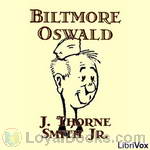 Biltmore Oswald
Biltmore Oswald
The hilarious diary of a young man's recruitment into, and service in a navy, which, though well equipped and disciplined, remains woefully ill prepared for his arrival and dubious contribution. (Introduction by Nigel Boydell) | |
By: Thomas Hood (1799-1845) | |
|---|---|
 Workhouse Clock
Workhouse Clock
There were scarcely any events in the life of Thomas Hood. One condition there was of too potent determining importance—life-long ill health; and one circumstance of moment—a commercial failure, and consequent expatriation. Beyond this, little presents itself for record in the outward facts of this upright and beneficial career, bright with genius and coruscating with wit, dark with the lengthening and deepening shadow of death. | |
By: F. Anstey (1856-1934) | |
|---|---|
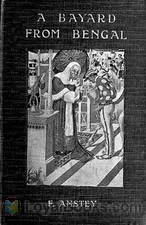 Bayard from Bengal
Bayard from Bengal
The estimable gentleman, Chunder Bindabun Bhosh, ESQ., B.A., travels from his native India to England, with his impeccable English and manners, which immediately mark him as a foreigner, and embarks on an enviable program of escapades. These stories are the product of the fertile imagination of Hurry Bungsho Jabberjee, B.A., a nom de plume for the humorist F. Anstey, which is a further nom de plume for Thomas Anstey Guthrie. Whether rescuing a nubile maiden from a charging bull or falling in love with said nubile maiden, Mr. Bosh, B. A. cannot help but perform with the requisite humor to engage our attention. | |
By: Heywood Broun (1888-1939) | |
|---|---|
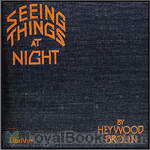 Seeing Things at Night
Seeing Things at Night
This Book is a collection of humorous short stories which describe the comedy in everyday things and situations. | |
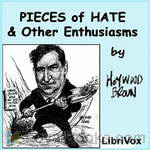 Pieces of Hate and other Enthusiasms
Pieces of Hate and other Enthusiasms
This book is a collection of humorous short stories about ordinary instances in daily life. We learn many interesting things about life, such as how to court women successfully, what it feels like to be a god, and why sometimes it would be a good idea to exchange one's own newborn baby for a better one at the hospital. | |
By: Knight Russ Ockside (1830-1898) | |
|---|---|
 History and Records of the Elephant Club
History and Records of the Elephant Club
Mortimer Q. Thomson (September 2, 1832 – June 25, 1875) was an American journalist and humorist who wrote under the pseudonym Q. K. Philander Doesticks. He was born in Riga, New York and grew up in Ann Arbor, Michigan. He attended Michigan University in Ann Arbor, but was expelled along with several others either for his involvement in secret societies[1] or for "too much enterprise in securing subjects for the dissecting room."[2] After a brief period working in theater, he became a journalist and lecturer... | |
By: Jesse Lynch Williams (1871-1929) | |
|---|---|
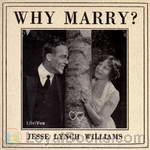 Why Marry?
Why Marry?
Why Marry? is a comedy, which "tells the truth about marriage". We find a family in the throes of proving the morality of marriage to a New Age Woman. Can the family defend marriage to this self-supporting girl? Will she be convinced that marriage is the ultimate sacredness of a relationship or will she hold to her perception that marriage is the basis of separating two lovers."Why Marry?" won the first Pulitzer Prize for Drama. | |
By: Steele Rudd (1868-1935) | |
|---|---|
 On Our Selection
On Our Selection
The humorous account of Dad and Dave and the rest of the Rudd clan as they attempt to carve a farming 'selection' out of the Australian wilderness in spite of fire, famine, snakebite, and a loony hired hand. | |
By: Susan Edmonstoune Ferrier | |
|---|---|
 Marriage, Volume 1
Marriage, Volume 1
“Love!–A word by superstition thought a God; by use turned to an humour; by self-will made a flattering madness.” – Alexander and Campaspe. Lady Juliana, the indulged and coddled seventeen (”And a half, papa”) year old daughter of the Earl of Cortland, is betrothed by her father to a wealthy old Duke who can give her every luxury. She instead runs away and marries her very handsome but penniless lover. Very soon, they are forced to travel to Scotland to live with his quirky family in a rundown “castle” in the barren wilderness. Can this marriage survive?(Summary by P.Cunningham) | |
By: John Wight (1866-1944) | |
|---|---|
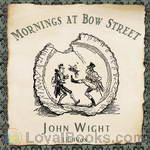 Mornings at Bow Street
Mornings at Bow Street
This is a collection of various articles found in Morning Herald columns. Some are found interesting, some may be hilarious! The 84 pieces of this book are actual reports throughout the 1870s newspaper written by the reporter, John Wight and Illustrated by George Cruikshank | |
By: Christopher Morley (1890-1957) | |
|---|---|
 In the Sweet Dry and Dry
In the Sweet Dry and Dry
Written just before Prohibition to entail the possible troubles that might happen en route. Both sides of the argument, or battle as the case may be, strike out with various over-top methods like legislating most fruits and vegetables as unsafe or intoxicating large groups with breathable alcohol. | |
By: Q. K. Philander Doesticks (1832-1875) | |
|---|---|
 The Witches of New York
The Witches of New York
A humorous account of visits to various fortune tellers, card readers, seers, and other "witches" of New York. Written by Q.K. Philander Doesticks (a.k.a.Mortimer Thomson). | |
By: Herbert George Jenkins (1876-1923) | |
|---|---|
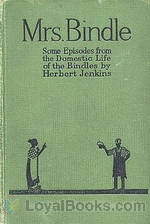 Mrs. Bindle
Mrs. Bindle
Herbert Jenkins' most popular fictional creation was Mr. Joseph Bindle, who first appeared in a humorous novel in 1916 and in a number of sequels. In the preface to the books, T. P. O'Connor said that "Bindle is the greatest Cockney that has come into being through the medium of literature since Dickens wrote Pickwick Papers". The stories are based on the comedic drama of life at work, at home and all the adventures that take place along the way. It becomes clear as the stories progress that Bindle would not be who he is without Mrs. Bindle, and this book seeks to tell the stories of the Bindles from the distaff point of view. | |
By: Kenneth McGaffrey (??-1938) | |
|---|---|
 The Sorrows of a Show Girl
The Sorrows of a Show Girl
Originally printed in The Morning Telegraph in New York, this is the story of Miss Sabrina, the show girl, and her ups and downs with the unpredictable theatrical industry and the Great White Way, the lights and glamour of Broadway. "In order to set myself right with both the public and the vast army of Sabrinas that add youth and beauty to our stage, and brilliancy and gaiety to our well known cafes, I wish to say that she is all that she should be...”- Kenneth McGaffrey | |
By: Unknown | |
|---|---|
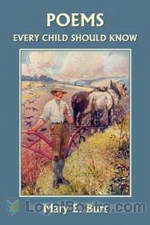 Poems Every Child Should Know
Poems Every Child Should Know
A treasure trove of more than two hundred poems, this gem of an anthology compiled by Mary E Burt is indeed a most valuable set of poems to read or listen to. Published in 1904, Poems Every Child Should Know contains some well-loved verses like Thomas Gray's Elegy Written in a Country Churchyard, Lewis Carroll's delightful parody Father William, Felicia Hemans' deeply-moving Casablanca and other favorites. It also has lesser-known but equally beautiful pieces like Henry Wadsworth Longfellow's The Arrow and The Song, Robert Browning's The Incident of the French Camp, Eugene Field's nonsense lyrics Wynken, Blynken and Nod and a host of other wonderful verses... | |
By: Marshall Pinckney Wilder (1859-1915) | |
|---|---|
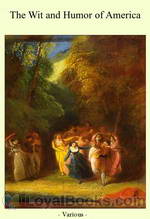 The Wit and Humor of America
The Wit and Humor of America
Light hearted, entertaining and amusing as it takes on contemporary American life would best describe The Wit and Humor of America by Marshall Pinckney Wilder whish is a compilation of humorous passages from various works of American literature. Ranging from Harriet Beecher Stowe's Dinah's Kitchen to Dislikes by Oliver Wendell Holmes, Little Orphint Annie by James Whitcomb Riley, The Auto Rubaiyat by Reginald Wright Kauffman, Garden Ethics by Charles Dudley Warner and Morris and the Honorable Tim by Myra Kelley and many more delightful pieces, the book is indeed a treasure trove of humor... | |
By: Various | |
|---|---|
 Coffee Break Collection
Coffee Break Collection
If you find yourself with nothing particular to do in an airport, train or bus or you've got a quiet evening to yourself in a hotel room or you're facing the delicious prospect of an extended lunch or tea break, why not pick up Coffee Break Collection 001 and enjoy the experience? This anthology has a selection of humorous pieces guaranteed to keep you entertained. Opening with a master of the genre, PG Wodehouse, the first story is a pseudo-scholarly treatise on football captains! A delightful piece follows – Beyond Pandora by RJ Martin with its memorable opening line, “The ideal way to deal with a pest... | |
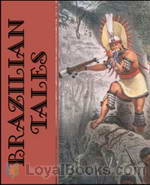 Brazilian Tales
Brazilian Tales
“Brazilian Tales” is a collection of six short stories selected by Isaac Goldberg as best representative of the Brazilian Literature of his period – the end of the 19th century. His comprehensive preface aims at familiarizing the reader with a literature that was – and still is – virtually unknown outside the boundaries of its own land, and the pieces chosen by Goldberg to be translated belong to writers that reached popularity and appreciation while still alive. This “pioneer volume”, as the translator himself puts it, still keeps its charm and interest as a way of offering to the English speaking public some “sample cases” of Brazilian Literature. | |
By: Anonymous | |
|---|---|
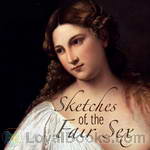 Sketches Of The Fair Sex
Sketches Of The Fair Sex
Sketches of the fair sex, in all parts of the world. To which are added rules for determining the precise figure, the degree of beauty, the habits, and the age of women, notwithstanding the aids and disguise of dress. It is our design to present a pleasing and interesting miscellany, which will serve to beguile the leisure hour, and will at the same time couple instruction with amusement. We have used but little method in the arrangement: Choosing rather to furnish the reader with a rich profusion... | |
 English as She is Wrote
English as She is Wrote
"...Showing Curious ways in which the English Language may be made to convey Ideas or obscure them." A collection of unintentionally humorous uses of the English language. Sections of the work: How she is wrote by the Inaccurate, By Advertisers and on Sign-boards, For Epitaphs, By Correspondents, By the Effusive, How she can be oddly wrote, and By the Untutored. | |
By: Various | |
|---|---|
 Short Humor Collection
Short Humor Collection
This is a collection of short humorous works first published before 1923. | |
By: Unknown | |
|---|---|
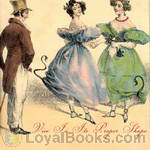 Vice in its Proper Shape
Vice in its Proper Shape
Cautionary tales of the transmigration of the souls of naughty boys and girls, as elucidated by the mysterious Bramin, Mr Wiseman: “Having been gifted with the faculty of distinguishing those animals which are now animated by the souls of such human beings as formerly degraded themselves to a level with the unthinking brutes, I have taken the pains to provide a collection of beasts, birds, &c. most of which are inhabited by the souls of some naughty masters or misses, who died in the neighbourhood.” (David Barnes, quoting the Introduction) | |
 Humour of the North
Humour of the North
Some day an enterprising editor may find time to glean from the whole field of Canadian literature a representative collection of wit and humour. . . . The present little collection obviously makes no such ambitious claim. It embraces, however, what are believed to be representative examples of the work of some of our better-known writers, many of which will no doubt be quite familiar to Canadian readers, but perhaps none the less welcome on that account. | |
By: Richmal Crompton (1890-1969) | |
|---|---|
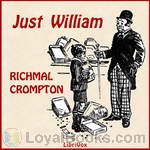 Just William
Just William
William is a mischievous eleven year old who is puzzled by the adult world, which is no less puzzled by him. The humor is gentle and pleasing. The series of books is better known in the United Kingdom than in the U.S. ( | |
By: Chester K. Steele (1862-1930) | |
|---|---|
 The Diamond Cross Mystery
The Diamond Cross Mystery
Colonel Ashley is confronted with a difficult case: The proprietor of a jewelry shop is found murdered, and a valuable diamond cross is stolen. Whodunnit, and how can the Colonel's expertise in fishing help to solve the case? | |
By: Owen Wister (1860-1938) | |
|---|---|
 The New Swiss Family Robinson
The New Swiss Family Robinson
A parody of its famous predecessor, this short piece was written by Owen Wister for the Harvard Lampoon | |
By: Anonymous | |
|---|---|
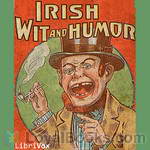 Irish Wit and Humor
Irish Wit and Humor
Excerpted anecdotes from the biographies of Swift, Curran, O'Leary and O'Connell, relating humorous snippets of politics in 18th and 19th century Ireland. For some these may be poignant in addition to being humorous and for others they may be humorous in addition to being poignant. ( | |
By: Carroll Watson Rankin (1864-1945) | |
|---|---|
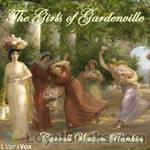 The Girls of Gardenville
The Girls of Gardenville
It is pleasant to have another book about a group of merry, natural girls, who have the attractions of innocence and youthful faults. "The Sweet Sixteen" Club made fudge, and went on picnics, and behaved just as jolly, nice maidens should. (The Outlook, vol. 82, Mar. 24, 1906) | |
By: Barry Pain (1864-1928) | |
|---|---|
 Eliza
Eliza
A gentle, yet deliciously humourous series of anecdotes following the life of the main character and his wife, Eliza. | |
By: Richard Marsh (1857-1915) | |
|---|---|
 Amusement Only
Amusement Only
This is a collection of 12 short stories of mystery and humor, which are, as the title says, for amusement only. | |
By: A. A. Milne (1882-1956) | |
|---|---|
 The Sunny Side
The Sunny Side
The Sunny Side is a collection of short stories and essays by A. A. Milne. Though Milne is best known for his classic children's books, especially Winnie The Pooh, he also wrote extensively for adults, most notably in Punch, to which he was a contributor and later Assistant Editor. The Sunny Side collects his columns for Punch, which include poems, essays and short stories, from 1912 to 1920. Wry, often satirical and always amusingly written, these pieces poke fun at topics from writing plays to lying about birdwatching. They vary greatly in length so there is something for everyone. | |
By: Arnold Bennett (1867-1931) | |
|---|---|
 Self and Self-management: Essays about Existing
Self and Self-management: Essays about Existing
Bennett's essays always provide food for thought and bring a wry smile to the lips. Human nature, it appears, changes little over the ages, and Bennett's writing stands the test of time, though in the case of some of the essays in this eclectic collection, it is well to remember that they were written at the time of the First World War and the fight for women's suffrage. | |
By: Ellis Parker Butler (1869-1937) | |
|---|---|
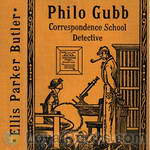 Philo Gubb, Correspondence-School Detective
Philo Gubb, Correspondence-School Detective
Philo Gubb, not being content with his job as wallpaper-hanger, has higher aspirations: to become a detective, just like Sherlock Holmes. To that end, he enrolls in a correspondence course, where he gets lessons through the mail as well as the necessary disguises for a detective. Philo Gubb, not being really clever or intuitive, or even looking good in those disguises, gets involved in one case after the other - and sooner or later happens to stumble on and solve the crime... Each of these stories... | |
By: Saki (1870-1916) | |
|---|---|
 The Toys of Peace
The Toys of Peace
This is the fifth collection of short stories by Saki (H.H. Munro), and was published posthumously in 1923. Even so, many of the stories are quite up to the standard of those collected earlier. | |
By: Richard Harding Davis (1864-1916) | |
|---|---|
 The Make-Believe Man
The Make-Believe Man
Adventure was what our protagonist was looking for, when he boarded the steamer "Patience" for his holiday, and when one has a man with such a vivid imagination like Joseph Forbes Kinney as a travel companion, who seems to find adventures at every turn of the road (and if not, he manufactures them), the two travellers are sure to stumble into trouble... | |
By: G. K. Chesterton (1874-1936) | |
|---|---|
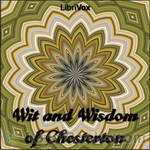 Wit and Wisdom of Chesterton
Wit and Wisdom of Chesterton
In this collection, Bevis Hillier has put together some of Chesterton's essays in "The Defandant", "Varied Types" and "Tremendous Trifles". These 12 pieces were chosen to giving a peek into the margins of Chesterton's work and give a sense of the distinctive flavor of his mind. They were also chosen with an eye to showing what a complex and fascinating character he was. | |
By: Thomas Hardy (1840-1928) | |
|---|---|
 The Hand of Ethelberta
The Hand of Ethelberta
Ethelberta was raised in humble circumstances but became a governess and consequently, at the age of 18, married well. However, her husband died two weeks after the wedding. Her father-in-law, Lord Petherwin, died shortly afterwards. Ethelberta (now 21) lives with her mother-in-law, Lady Petherwin. In the three years that have elapsed since her marriage, Ethelberta has been treated to foreign travel and further privileges by Lady Petherwin but restricted from seeing her own family. The story follows Ethelberta's career as a famous poetess and storyteller... | |
By: Joel Chandler Harris (1845-1908) | |
|---|---|
 Uncle Remus Returns
Uncle Remus Returns
Uncle Remus tells these 11 stories but to the son of the original "little boy" who is visiting his grandmother on the plantation. As always Uncle Remus can be relied upon to provide funny and pointed insight into human personalities through his story telling. These were all published in the Uncle Remus magazine from 1905 and 1906 and gathered together in this book by the author. Note that these stories are reflections of another period in time and some of the language used would definitely be considered rude and/or offensive now. In keeping with the desire to present the text as the author wrote it, nothing has been changed or edited. | |
By: A. A. Milne (1882-1956) | |
|---|---|
 Once a Week
Once a Week
A collection of short stories by famed Winnie the Pooh author, A.A. Milne. This charmingly humorous work from Milne's earlier writing period was first published in Punch magazine. | |
By: Arnold Bennett (1867-1931) | |
|---|---|
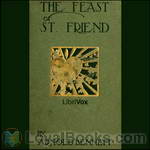 The Feast of St. Friend
The Feast of St. Friend
In The Feast of St. Friend, a Christmas book, Arnold Bennett shares his views on Christmas as the season of goodwill. As always, Bennett's writing includes some thought-provoking ideas liberally spiced with his wry sense of humour, and as always too, you can barely believe it was written so long ago. This was published exactly 100 years ago, in 1911. (Introduction by Ruth Golding) | |
By: Dorothy Canfield Fisher (1879-1958) | |
|---|---|
 The Bent Twig
The Bent Twig
Semi-autobiographical series of incidents in the life of an intellectual American family in the late 19th - early 20th Century as seen by favored daughter, Sylvia Marshall. Her father is an economics professor in a Midwestern state university and she is following in his inquisitive footsteps. Canfield writes this in a matter-of-fact manner with Tarkingtonesque good humor. | |
By: Cal Stewart (1856-1919) | |
|---|---|
 Uncle Josh's Punkin Centre Stories
Uncle Josh's Punkin Centre Stories
A collection of comedic short stories from the perspective of an old country man. | |
By: A. A. Milne (1882-1956) | |
|---|---|
 Not That It Matters
Not That It Matters
More of the witty, wry, and deliciously wicked essays and articles written by Milne. Most people know him as the creator of Winnie The Pooh, but he worked for many years as editor of Punch Magazine and these are some of his best. Not That It Matters is a collection of over 40 of these short stories and articles. Not That It Matters collects his columns for Punch, which include poems, essays and short stories, from 1912 to 1920. Most of his writing pokes fun, both gentle and not so gentle at a variety of topics... | |
By: George Horace Lorimer (1869-1937) | |
|---|---|
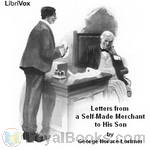 Letters from a Self-Made Merchant to His Son
Letters from a Self-Made Merchant to His Son
Being the Letters written by John Graham, Head of the House of Graham & Company, Pork-Packers in Chicago, familiarly known on 'Change as "Old Gorgon Graham," to his Son, Pierrepont, facetiously known to his intimates as "Piggy." George Horace Lorimer was an American journalist and author. He is best known as the editor of The Saturday Evening Post. | |
By: Christopher Morley (1890-1957) | |
|---|---|
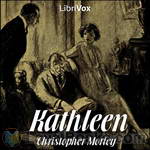 Kathleen
Kathleen
A group called the Scorpions, eight Oxford undergraduates, find a letter Kathleen wrote a letter to Joe at Oxford. They build up an image of Kathleen and Joe from the letter and set out to find and meet Kathleen. The competition between them leads to many entertainingly funny scenarios. | |
By: Stephen Leacock (1869-1944) | |
|---|---|
 My Discovery of England
My Discovery of England
"In the course of time a very considerable public feeling was aroused in the United States and Canada over this state of affairs. The lack of reciprocity in it seemed unfair. It was felt (or at least I felt) that the time had come when some one ought to go over and take some impressions off England. The choice of such a person (my choice) fell upon myself. By an arrangement with the Geographical Society of America, acting in conjunction with the Royal Geographical Society of England (to both of whom I communicated my proposal), I went at my own expense."And from thence follow the impressions of Canadian political economist and humourist, Stephen Leacock, after a lecturing visit to England. | |
By: Agnes Repplier (1855-1950) | |
|---|---|
 In Our Convent Days
In Our Convent Days
With her usual wit and charm, Ms. Repplier recalls her days at Eden Hall, the Convent of the Sacred Heart in Torresdale, north of Philadelphia. She shares the highlights (and some of the low lights) of her time there. Perhaps this sharp eye, nurtured by her willfulness and independent spirit, was the reason she was not invited to return to Eden after her second year. Not only Catholics or boarding school alumnae will find this book entertaining; anyone who went to school or who looks back on their childhood will see their own experience somewhere in this memoir. | |
By: Imogen Clark | |
|---|---|
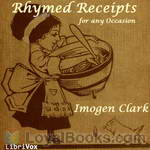 Rhymed Receipts for Any Occasion
Rhymed Receipts for Any Occasion
In addition to being amusing, recipes written in a poetic form were easy to remember and used as learning tools for the young housekeeper. Many of the poems in this 1912 publication were originally published in Woman's Home Companion, Good Housekeeping Magazine, the Housewife, Table Talk, and the Boston Cooking School Magazine. | |
By: James Thomson (1834-1882) | |
|---|---|
 Satires and Profanities
Satires and Profanities
"Believing as I do that James Thomson is, since Shelley, the most brilliant genius who has wielded a pen in the service of Freethought, I take a natural pride and pleasure in rescuing the following articles from burial in the great mausoleum of the periodical press. There will doubtless be a diversity of opinion as to their value. One critic, for instance, has called “The Story of a Famous Old Jewish Firm” a witless squib; but, on the other hand, the late Professor Clifford considered it a piece of exquisite mordant satire worthy of Swift... | |
By: Washington Irving (1783-1859) | |
|---|---|
 Letters of Jonathan Oldstyle, Gent.
Letters of Jonathan Oldstyle, Gent.
The Letters of Jonathan Oldstyle, Gent. (1824) is a compilation of eight humorous and observational letters written by American writer, Washington Irving, under the pseudonym, Jonathan Oldstyle. These eight letters and one additional were first published as a series of "Letters to the Editor" of the New York paper, The Morning Chronicle, between 1802 and 1803. In them Oldstyle skewered the local New York social scene on the topics of etiquette, marriage, fashion, and other particulars of human interaction... | |
By: Saki (1870-1916) | |
|---|---|
 Unbearable Bassington
Unbearable Bassington
The Unbearable Bassington was the first novel written by Saki (H. H. Munro). It also contains much of the elegant wit found in his short stories. Comus (The Unbearable) Bassington, is a charming young man about town. His perversity however thwarts all his mother’s efforts to advance his prospects and lands him in hot water. Like many a “black sheep” he ends up being sent off to one of the colonies to fend for himself. This book showcases Saki’s wonderful writing and that ability to be so very funny and terribly sad at the same time. | |
By: Anonymous | |
|---|---|
 Jokes For All Occasions
Jokes For All Occasions
JOKES FOR ALL OCCASIONSPREFACEThe ways of telling a story are as many as the tellers themselves. It is impossible to lay down precise rules by which any one may perfect himself in the art, but it is possible to offer suggestions by which to guide practise in narration toward a gratifying success. Broadly distinguished, there are two methods of telling a story. One uses the extreme of brevity, and makes its chief reliance on the point. The other devotes itself in great part to preliminary elaboration in the narrative, making this as amusing as possible, so that the point itself serves to cap a climax... | |
By: George Calderon (1868-1915) | |
|---|---|
 Cinderella
Cinderella
If you are expecting glass slippers and pumpkin coaches, look elsewhere... This is "a pantomime as Ibsen would have written it, if only it had occurred to him to write one." Set on a "bleak and cheerless heath overlooking the fjord" we meet Ibsenesque heroine Mrs. Inquest, her step-daughter Hilda, and her daughter Hedda, who is engaged to be married to the unfortunate Tesman. Thus begins Calderon's hilarious Ibsenesque version of Cinderella. NOTE from the editor of the volume, published in 1922 after Calderon's death: This play is hardly more than a rough draft, written when the idea was fresh and put aside to be worked on when the right moment should come... | |
By: Robert Jones Burdette (1844-1914) | |
|---|---|
 Chimes From A Jester’s Bells
Chimes From A Jester’s Bells
Part I. The Story of Rollo; Mr. Holliday knows all there is to know about raising children, or at least he thinks he does. His attempts to train his son, Rollo, "in the way he should go," are well-meant, but hilariously unsuccessful--or are they? I believe this is a sort of spoof of the “Rollo” series for children, that was written by Jacob Abbot in the mid 19th century. The characters have the same names and the chapters have a little Q&A at the end like the Abbot books, except these are definitely tongue-in-cheek... | |
By: Allan Monkhouse (1858-1936) | |
|---|---|
 Mary Broome
Mary Broome
Before Downton Abbey, there was Mary Broome. In Allan Monkhouse's 1911 satire, when the son of a middle-class household gets their housemaid pregnant, the two families must try to combine their very different values. | |
By: Emily Eden (1797-1869) | |
|---|---|
 Semi-Attached Couple
Semi-Attached Couple
Young and beautiful Helen Eskdale and fabulously wealthy Lord Teviot seem to be the perfect match. But when they marry, they find that misunderstandings and jealousies continually drive them apart. The machinations and intrigues of a large supporting cast surround the central question of whether their marriage will survive. Emily Eden's comedy of manners is reminiscient of Jane Austen's witty and ironic novels. | |
By: Arthur W. Marchmont (1852-1923) | |
|---|---|
 Dash for a Throne
Dash for a Throne
The young Count von Rudloff got himself into so much trouble with the Imperial Family in Berlin, that he sees no other way out of it than to fake his own death. Stumbling through different identities, he finally assumes - quite against his will - the identity of the Prince von Gramberg. At Gramberg Castle, he finds a web of intrigue, which threatens the safety of the young and beautiful Countess Minna. The Count von Rudloff decides to save the girl, but the intrigue is more complicated than it first appeared, and there are old enemies who are still waiting for their revenge... | |
By: St. John Emile Clavering Hankin (1869-1909) | |
|---|---|
 Mr. Punch's Dramatic Sequels
Mr. Punch's Dramatic Sequels
A collection of short and humorous one-act "sequels" to 14 major plays (many already in the catalog). Plays end too soon. They never show the whole of what I want to know. The curtain falls and I'm perplexed with doubts about what happened next. Did HAMLET'S father haunt no more the battlements of Elsinore? Does LADY TEAZLE never call at LADY SNEERWELL'S now at all? Was BENEDICK'S a happy marriage? And will the MELNOTTES keep a carriage? Will AUBREY take to wife one day another MRS. TANQUERAY? Do ECCLES and his stepson wrangle? Has anything been heard of DANGLE? What has become of MRS... | |
By: C. J. Dennis (1876-1938) | |
|---|---|
 Ruined Reversolet
Ruined Reversolet
LibriVox volunteers bring you 16 recordings of A Ruined Reversolet by C. J. Dennis. This was the Weekly Poetry project for October 28, 2012.Clarence James Dennis was an Australian poet and journalist. In his varied career, he worked as a barman, shearer, solicitor's clerk, newspaper proprietor and (as do many Australians) a civil servant, before settling down in a rural retreat at Toolangi, in the Dandenong Ranges, east of Melbourne.His most famous work is "The Songs of a Sentimental Bloke", a verse novel written in an Australian vernacular and first published in 1915... | |
By: Mark Twain (1835-1910) | |
|---|---|
 Mark Twain’s Journal Writings, Volume 2
Mark Twain’s Journal Writings, Volume 2
This second collection of essays by Mark Twain is a good example of the diversity of subject matter about which he wrote. As with the essays in Volume 1, many first appeared alone, in magazines or newspapers, before being printed as chapters of his larger works, while others were taken from larger works and reprinted in collections of essays. On top of being prolific, Mark Twain was a very successful marketer of his works. Volume 2 contains the following works: 1.) "A Curious Experience" - 1892 2... | |
By: Cuey-na-Gael (1858-1937) | |
|---|---|
 Irishman's difficulties with the Dutch language
Irishman's difficulties with the Dutch language
Jack O'Neill, an Irishman, has just returned from a month's holiday in The Netherlands. Before he left, he had boasted to his friends that he would learn the Dutch language within a fortnight. On his return, he has to admit that it wasn't quite that easy... He tells his friends stories about his clumsy attempts to speak Dutch, leading to many funny scenes.This audiobook contains both "An Irishman's difficulties with the Dutch language" and its sequel "Jack O'Neill's further adventures in Holland"... | |
By: Mark Twain (1835-1910) | |
|---|---|
 Mark Twain’s Journal Writings, Volume 3
Mark Twain’s Journal Writings, Volume 3
This third volume of Mark Twain's journal writings continues on eclectic and varied path established by the first two volumes. Included in this collection are works that appeared by themselves in magazines during Twain's lifetime, as well as essays taken by editors and Twain himself from Twain's larger works, and re-published in collections of his stories. This volume includes the following works: "Buying Gloves in Gibraltar", "The great revolution in Pitcairn", "A Gift from India" [including editor's... | |